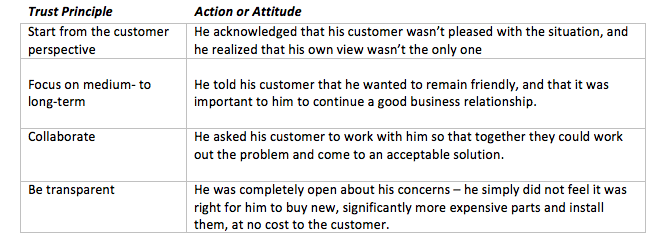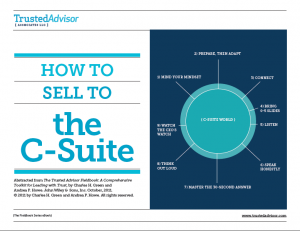Awarding Sales
A few weeks ago, I was included on a list as a Top 50 Sales & Marketing Influencer for 2012.
I appreciate that. I’m going to put it on our website’s front page for a little while, and I want to thank the good people at TopSalesWorld.com who put together the list.
I also want to say a few things about awards, about who’s on awards lists – and about selling.
Who’s On the List
I’m not a full-time sales guy. There are folks on this list who have devoted their lives to furthering the cause of sales, and I’m a little sheepish about being included in their company.
I’m not just talking about heavyweights like Tony Alessandra, Mark Benioff, Jeffrey Gitomer, Seth Godin, and Neil Rackham (Neil gets my nod for uber-guru).
I’m also talking about some really talented thinkers and doers. Do not consider this list exhaustive, because I’m only going to mention some whom I personally know fairly well, and therefore can personally attest to being great:
Paul McCord, a senior statesman also on the list, noted to me the conspicuous absence of Zig Ziglar. I myself note the equally curious absence of David A. Brock.
Still, let’s not get all tizzied up. No list will suit all preferences, else there’d be no need for a list. But what’s interesting is the idea of sales as a topic for a list.
Being Great at Sales
Selling is a fascinating application of human social behavior. It can be done in an anti-social manner (which is where we get our universal negative stereotypes about pushy, greedy, hard-sell salespeople).
But sales is also the locus of some of the best of human behavior. Sales, done rightly, is the art of improving other people’s lives, while getting paid a living for doing so.
I’m aware that this definition also includes therapists (potentially), as well as lawyers, accountants and consultants (again with the caveat). Rightly so.
Human beings interact with each other both well, and badly. Most of us manage many examples of each in the course of a day.
- Bad interactions are usually based on fear and blame, and manifest as attempts to get others to do our bidding
- Good interactions are usually based on beneficence and curiosity, and manifest as attempts to help others.
Because we interact on the basis of reciprocity, bad behavior begets more bad behavior, and good begets good. (Anyone detecting a parallel with spirituality here goes to the head of the class).
Which means: the best sales result from motivations that are the opposite of self-interest. I ask you: is that not a fascinating paradox?
Why Sales is Fascinating
Many salespeople are fond of saying, “Nothing happens until someone sells something.” This I find mundane.
Much more interesting is that sales is the theater where we act out our most human roles in the business world. Not finance, not manufacturing, not administration: sales. Sales is quintessentially human in its struggle to overcome our own limitations, and to become better people.
The really great authors know this. Neil Rackham wrote The Book about the necessity of listening before suggesting solutions. Jill Konrath writes about respecting the pressures on our customers’ lives. Ian Brodie lives the principles of the curious and gracious salesperson.
I really am honored to be included on this list, and that’s no sales pitch.


 Anthony Iannarino, creator of
Anthony Iannarino, creator of  To anyone who doubts the power of social media, I tell them how I came to know David A. Brock. Dave’s
To anyone who doubts the power of social media, I tell them how I came to know David A. Brock. Dave’s  Have you ever been run through a ‘sweat’ test interview? Maybe it’s a sales call, maybe a presentation. A senior person plays the tough-as-nails client. They make you sweat it. And—if you’re good enough—you win.
Have you ever been run through a ‘sweat’ test interview? Maybe it’s a sales call, maybe a presentation. A senior person plays the tough-as-nails client. They make you sweat it. And—if you’re good enough—you win. I’d like some readers’ advice.
I’d like some readers’ advice. We’re pleased to announce the release of our latest ebook:
We’re pleased to announce the release of our latest ebook:  I was still afraid of the Sales Monster Under the Bed when I was 32.
I was still afraid of the Sales Monster Under the Bed when I was 32. They wanted to sell a used truck. My son wanted to buy one for his business. He asked me to come along to help negotiate.
They wanted to sell a used truck. My son wanted to buy one for his business. He asked me to come along to help negotiate.